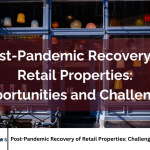The real estate sector has long been a significant contributor to global carbon emissions and environmental degradation. Traditional construction practices, energy-intensive buildings, and inefficient management of properties have resulted in large ecological footprints.
However, the rise of Property Technology, commonly known as PropTech, is ushering in a new era where sustainability is becoming a central focus in real estate development, management, and investment.
PropTech leverages cutting-edge digital tools such as IoT (Internet of Things), AI (Artificial Intelligence), big data analytics, blockchain, and smart building systems to enhance the efficiency, transparency, and sustainability of real estate operations. This revolution is not only helping to reduce the environmental impact of buildings but also driving cost savings, improved occupant well-being, and compliance with stricter environmental regulations.
The Environmental Impact of Traditional Real Estate
The Scale of the Problem
The construction and operation of buildings account for approximately 40% of global energy consumption and nearly one-third of greenhouse gas emissions worldwide. This includes energy used for heating, cooling, lighting, water use, and construction materials like cement and steel, which have high embodied carbon.
Inefficiencies in Traditional Buildings
Older buildings often suffer from outdated systems leading to energy waste. Manual management of utilities, lack of real-time data, and reactive maintenance further exacerbate inefficiencies, increasing operational costs and environmental impact.
The Growing Demand for Sustainable Buildings
Increasing awareness of climate change, coupled with government regulations and consumer preferences, has led to a surge in demand for green buildings that minimize environmental footprints through energy efficiency, renewable energy integration, and sustainable materials.
What is PropTech?
Definition and Scope
PropTech refers to the use of technology to innovate and improve real estate services across the entire lifecycle of a building—from design, construction, operation, to transaction and management.
Key Technologies in PropTech
- Internet of Things (IoT): Sensors and connected devices that monitor building conditions in real time.
- Artificial Intelligence (AI) and Machine Learning: Analyze data to optimize energy use and predictive maintenance.
- Big Data Analytics: Provide insights into consumption patterns and occupant behavior.
- Blockchain: Ensures transparency in property transactions and green certifications.
- Building Information Modeling (BIM): Digital modeling for sustainable design and construction.
- Smart Energy Systems: Integrate renewable energy sources and energy storage.
How PropTech Enables Sustainability in Real Estate
Energy Efficiency and Management
Smart meters, IoT sensors, and AI-driven systems allow continuous monitoring of energy use in buildings, identifying waste and optimizing consumption. Automated HVAC (Heating, Ventilation, and Air Conditioning) systems adjust settings based on occupancy and weather forecasts, reducing unnecessary energy expenditure.
Water Conservation
Advanced PropTech solutions monitor water usage, detect leaks early, and optimize irrigation in landscaping. Smart fixtures help reduce water waste without compromising occupant comfort.
Waste Reduction and Recycling
PropTech platforms enable efficient waste management by tracking waste generation, improving recycling rates, and enabling circular economy principles in construction through better material tracking.
Sustainable Construction
Digital tools like BIM enable architects and builders to design buildings that minimize material waste, optimize resource use, and improve building orientation to enhance natural light and ventilation.
Renewable Energy Integration
PropTech facilitates the integration of solar panels, wind turbines, and battery storage into building operations, optimizing generation and consumption through smart grid technologies.
Health and Well-being
Sustainable real estate is not just about the environment but also occupant health. PropTech solutions monitor indoor air quality, lighting, and noise levels to create healthier living and working environments.
Case Studies of PropTech Driving Sustainability
Smart Buildings in Major Cities
Examples of smart office buildings equipped with IoT sensors that have cut energy consumption by up to 30% are becoming increasingly common. In New York, London, and Singapore, PropTech-enabled buildings demonstrate significant carbon footprint reductions.
Green Retrofitting of Existing Buildings
PropTech solutions are applied to retrofit older structures, enabling them to meet modern sustainability standards through better energy management and predictive maintenance.
PropTech in Affordable Housing
Innovative technologies are making it possible to build and manage affordable housing that is both sustainable and cost-effective, expanding the benefits of green living to wider populations.
Benefits of PropTech-Driven Sustainability
Environmental Impact Reduction
The primary benefit is the reduction in greenhouse gas emissions and resource use, helping cities and countries meet their climate targets.
Financial Savings
Energy and water efficiencies translate into significant cost savings for building owners and tenants.
Regulatory Compliance
With increasing environmental regulations, PropTech helps real estate stakeholders ensure compliance with certifications like LEED, BREEAM, and WELL.
Improved Asset Value
Sustainable buildings tend to have higher occupancy rates, rental premiums, and resale values.
Enhanced User Experience
Smart systems improve occupant comfort, health, and productivity, making buildings more attractive.
Challenges and Barriers
High Initial Costs
The upfront investment in PropTech solutions can be substantial, discouraging adoption, especially in cost-sensitive markets.
Integration with Legacy Systems
Retrofitting existing buildings with new technology is complex and often requires significant modifications.
Data Privacy and Security
IoT devices generate vast amounts of data, raising concerns about cybersecurity and privacy.
Skills Gap
There is a shortage of professionals skilled in both real estate and advanced technologies.
The Future of PropTech and Sustainability
AI and Automation Expansion
Artificial intelligence will play an even greater role in predictive analytics, energy optimization, and automated maintenance.
Blockchain for Green Certifications
Blockchain can provide immutable records of sustainability credentials, increasing trust and transparency.
Digital Twins
Virtual replicas of buildings will enable continuous monitoring and simulation to optimize sustainability outcomes.
Increased Collaboration
PropTech firms, real estate developers, governments, and sustainability advocates will collaborate more closely to accelerate adoption.
Frequently Asked Questions
What is PropTech and how does it relate to sustainability?
PropTech is the application of technology in real estate. It promotes sustainability by improving resource efficiency, reducing emissions, and supporting green building practices.
How do IoT devices contribute to sustainable buildings?
IoT devices monitor energy, water, and environmental conditions in real time, enabling automated controls and reducing waste.
Can PropTech help retrofit older buildings to be more sustainable?
Yes, PropTech solutions can integrate with legacy systems to improve efficiency and meet modern sustainability standards.
What are the main financial benefits of adopting PropTech for sustainability?
Reduced utility costs, increased property value, and compliance with green regulations contribute to financial savings.
Are there privacy concerns with PropTech in real estate?
Yes, the data collected by IoT devices must be managed securely to protect occupants’ privacy and prevent cyberattacks.
How does AI enhance sustainability in real estate?
AI analyzes data patterns to optimize energy use, predict maintenance needs, and improve building operations.
What is the role of blockchain in PropTech and sustainability?
Blockchain ensures transparency and trust in sustainability certifications and transactions, reducing fraud and enhancing accountability.
Conclusion
PropTech is fundamentally transforming the real estate industry by embedding sustainability into its core operations. From smarter energy and water management to healthier buildings and sustainable construction practices, technology is helping address some of the most pressing environmental challenges. Although there are hurdles to overcome, the future of PropTech promises to drive real estate toward a more sustainable, resilient, and prosperous future.






